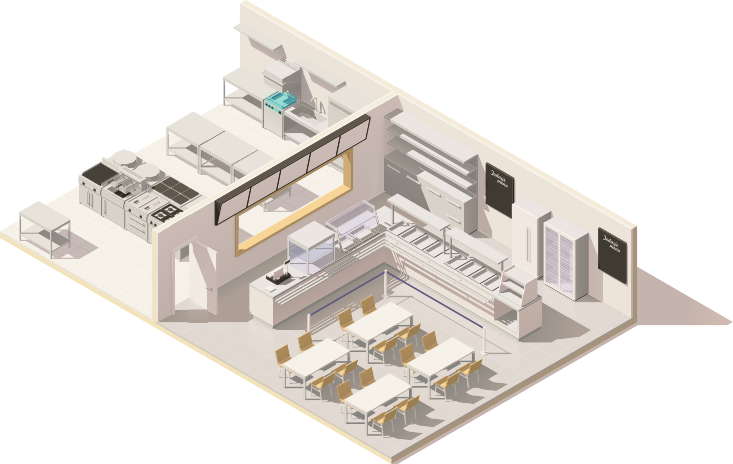Property Investment
Are you someone who’s thinking of real estate investing but don’t know the difference between commercial real estate and residential real estate? Before you kickstart your investment initiative in real estate, you must first understand the difference between the two.
Property investment is one made on land, a resource that is becoming more and more rare, much like gold and silver.
There are various ways to invest in property investment, and each has advantages and disadvantages.
People tend to make mistakes when starting investment properties, leading to a loss rather than an increase in profits. These losses are why it is highly important for you to fully grasp investing in real estate in order not to walk into debt.
In the first quarter of 2021, The National Property Information Centre of Malaysia (NAPIC) reported a successful selling of 6,099 commercial real estate properties, which is an increase compared to 5,020 transactions reported in the first quarter of 2020.
Many people are currently exploring their chances in real estate investment! However, before you rush into this new opportunity to invest in real estate, you need to know and understand the various intricacies surrounding real estate.
Not to worry! We will list the differences between these two real estate categories and note the advantages and drawbacks of investing in commercial real estate.
Residential VS Commercial
Residential real estate is a type of real estate that we buy to settle down in. Residential real estate is a safe choice for potential real estate investors because of its security and convenience for future families.
For residential real estate, you can choose whether to stay in the property you bought or rent it out to someone else. The difference is where the monthly payment for the house is coming from. If you chose to rent it out, the monthly payment from the tenant could ease the burden of your monthly installments.
Commercial Real Estate is a property that surrounds businesses. Examples include shop lots, hotels, or even convenience stores. Loans are harder to come by for commercial real estate because their terms and conditions differ from residential real estate.
As a long-term investment, the potential held in investing in commercial property to generate a high income is great, but the same can be said of its risks. The recurring costs that come with commercial real estate, such as high utility bills, insurance costs, and so on, are some reasons why it’s not for everyone.
So what are the terms and conditions to qualify for a bank loan?
There is little difference between the down payments for commercial and residential properties. But, it all depends on the bank you are applying for.
a. The loan margin is 70% or lower than 90% if you already own 2 residential real estate loans.
b. The loan financing period is 25-30 years only.
c. Banks are often uninterested in financing commercial real estates properties such as factories and retail spaces in shopping malls.
3 Benefits of Investing in Commercial Real Estate
When investing, we will inevitably see what we will receive and its benefits in the future. Now, we will list 3 advantages of investing in commercial real estate for you to consider.
1. Can divide space for various businesses
Due to purchasing a large space, a commercial real estate investor can draw up a diverse business division plan under that one area.
For example, an entrepreneur who buys commercial real estate can open up a grocery store, an eatery, and a joint co-working area to accumulate a higher profit rate. Since the spaces in one commercial real estate differ in size, you can rent them at different rates according to the space that they provide.
Furthermore, the division of space of the property can be rented out to many merchants while attracting potential customers to the location depending on the nature of the business.
2. Big profits
When investments have been made, it’s no surprise that investors seek after profits and engrossing returns. As described above, commercial real estate properties can be divided and rented out to different tenants.
In addition, a commercial real estate property such as a hotel will profit through tourism, with Malaysia becoming a booming center for tourism activities with many tourists entering and departing.
3. Versatile space
A ‘versatile space’ means you can quickly adapt your commercial real estate property according to the evolving times. If you own a commercial real estate property that is a food court, and you see now that co-working spaces are becoming a hot and highly productive trend, you can switch it up!
It is worthwhile for your commercial real estate property to be divided into different spaces for you to build a shared workspace and a food court simultaneously. This way, you can profit from two businesses at once.
Plus, a large space means you can transform or add to your business opportunities through commercial real estate.
Before investing, you should do a thorough research on the property you want.
Don’t make a mistake! Know the factors and sequences you should pay attention to!
🏘️ 5 Ways to Invest in Real Estate
3 Drawbacks of Investing in Commercial Real Estate
Like any other investment, some disadvantages come along with the advantages. Before you decide to push on commercial real estate because of the advantages, make sure you know the disadvantages as well.
1. Costly
Compared to residential real estate investments, commercial real estate requires higher initial payments. In addition to that, it also depends on the bank from which you want to apply for the loan. Loans vary from bank to bank.
Moreover, tariffs for commercial property utility bills also differ from residential real estate. For example, there are costs to renovate a commercial real estate property, which uses a high capital to pay for the cost of labor and construction materials.
There’s also a slight chance no one would rent your property from the get-go, and most of the rental cost would have to come out of your pocket.
2. Location Factors
If you invest in a commercial property that isn’t sought after, you will not make a profit or break even.
Most commercial properties need to be purchased in places with many consumers and those who want to shop. For example, a commercial property near a university or office will receive more visits than rural areas.
3. High Reward, High Risk
You can face a very high risk if your commercial property does not run smoothly by issuing a high payment for an extended period.
Commercial properties intended for public use have more public visitors, thus have more people who can damage your property. When that happens, you need to spend more money to maintain your commercial area and ensure the environment is safe for citizens.
These are the advantages and drawbacks that come with investing in commercial real estate. It is highly recommended that you consult with a real estate professional before carrying out your decision.
FAQ
What Are Real Estate Investment Trusts?
REITs or real estate investment trusts are organized as a partnership, trust, and association that invests directly in real estate through the purchase of real estate properties or by buying up mortgage payments.
What Is Real Estate Investing?
Real estate investing refers to the purchase of property investment to generate income instead of using it as a primary need.
What Is Rental Income Considered?
Rental income is an amount of passive income received from any rental property and is considered non-business income that is derived relatively passively.
So, what are you waiting for? Make the smart real estate investment today…
IQI Global can help you choose the best investment for your future as well as your family. With our Real Estate Negotiators ready to help you, you too can invest in real estate! Fill in the space below and we will contact you!






